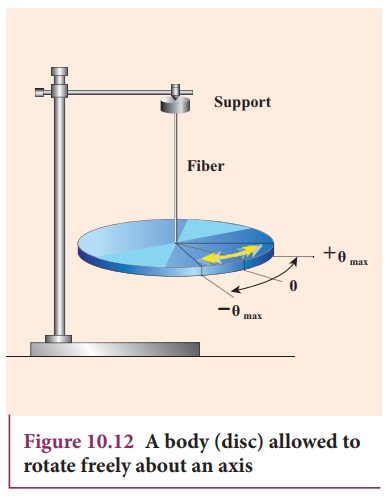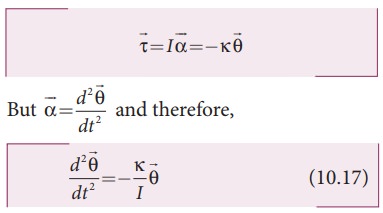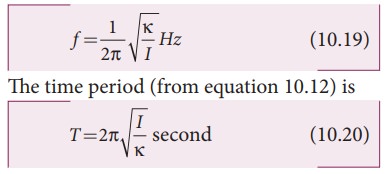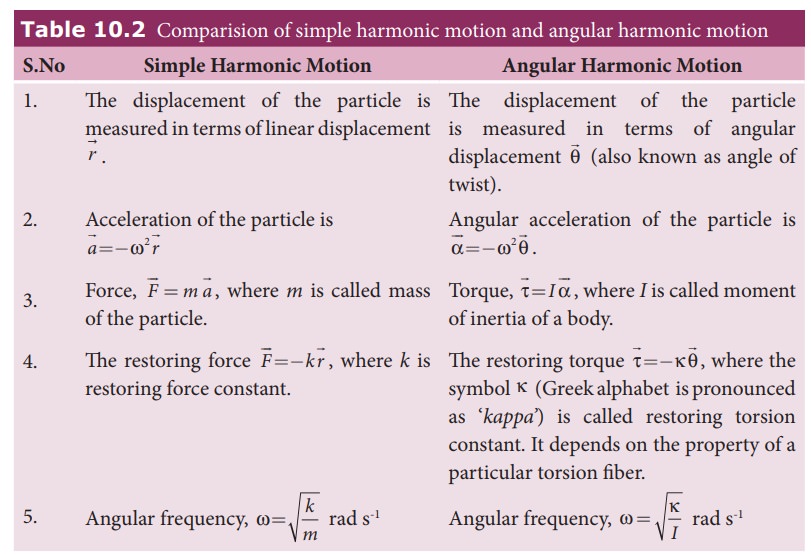Oscillations | Physics - Angular Simple Harmonic Motion | 11th Physics : UNIT 10 : Oscillations
Chapter: 11th Physics : UNIT 10 : Oscillations
Angular Simple Harmonic Motion
ANGULAR SIMPLE HARMONIC MOTION
Time period and frequency of angular SHM
When a body is allowed to rotate freely about a given
axis then the oscillation is known as the angular oscillation.

The point at which the resultant torque acting on the body is
taken to be zero is called mean position. If the body is displaced from the
mean position, then the resultant torque acts such that it is proportional to
the angular displacement and this torque has a tendency to bring the body
towards the mean position.
Let ![]() be the angular displacement of the body and the resultant torque
be the angular displacement of the body and the resultant torque ![]() the body is
the body is

κ is the restoring torsion constant, which is torque per unit angular displacement. If I
is the moment of inertia of the body and ![]() is the angular acceleration then
is the angular acceleration then

This
differential equation resembles simple harmonic differential equation.
So,
comparing equation (10.17) with simple harmonic motion given in equation
(10.10), we have

The frequency of the angular harmonic motion (from
equation 10.13) is

Comparison of Simple Harmonic Motion and Angular Simple Harmonic Motion
In
linear simple harmonic motion, the displacement of the particle is measured in
terms of linear displacement ![]() The restoring force is
The restoring force is ![]() =− k
=− k ![]() , where k is a spring constant or force constant which is force per unit
displacement. In this case, the inertia factor is mass of the body executing
simple harmonic motion.
, where k is a spring constant or force constant which is force per unit
displacement. In this case, the inertia factor is mass of the body executing
simple harmonic motion.
In
angular simple harmonic motion, the displacement of the particle is measured in
terms of angular displacement ![]() . Here, the spring factor stands for
torque constant i.e., the moment of the couple to produce unit angular
displacement or the restoring torque per unit angular displacement. In this
case, the inertia factor stands for moment of inertia of the body executing
angular simple harmonic oscillation.
. Here, the spring factor stands for
torque constant i.e., the moment of the couple to produce unit angular
displacement or the restoring torque per unit angular displacement. In this
case, the inertia factor stands for moment of inertia of the body executing
angular simple harmonic oscillation.

Related Topics